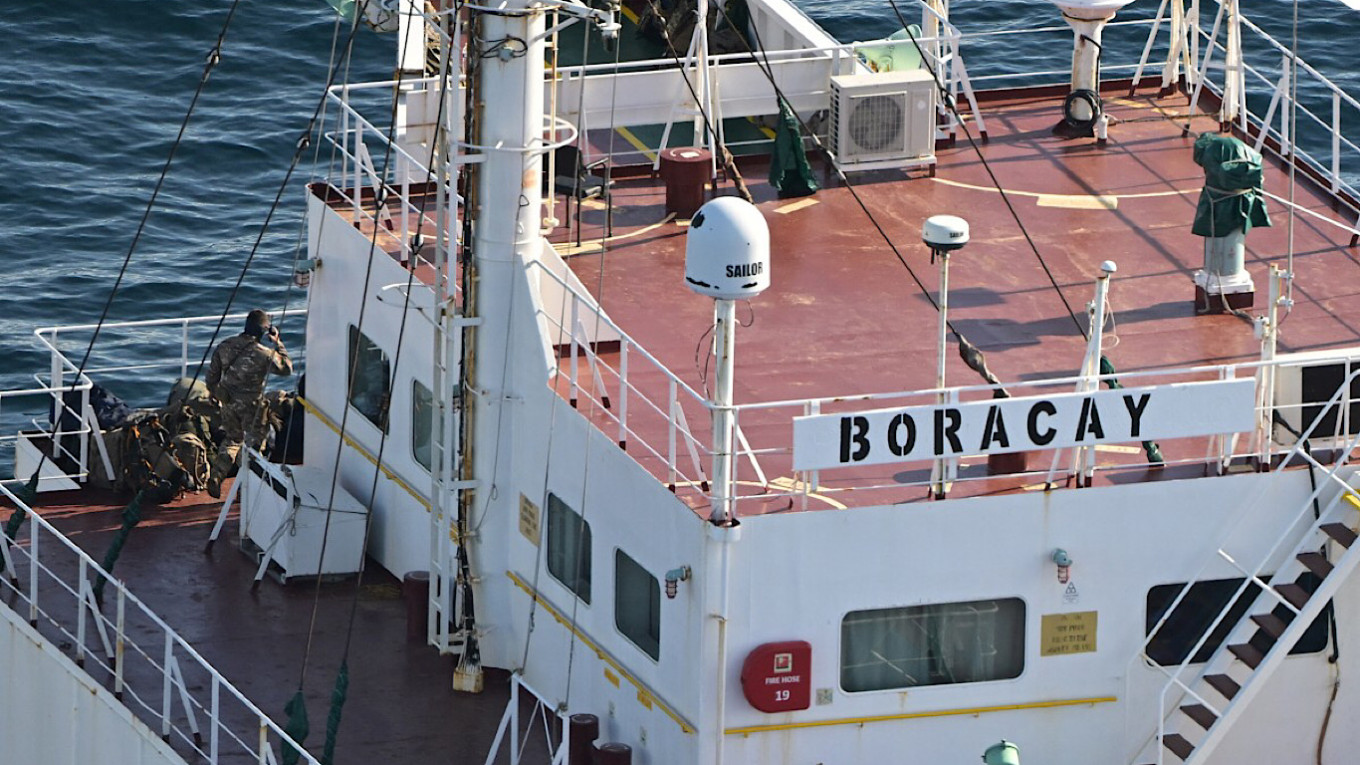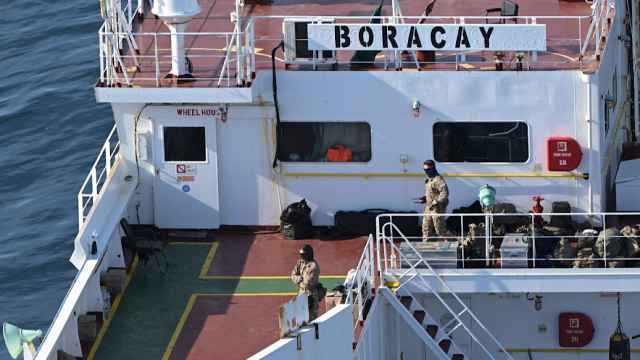A tanker from Russia's "shadow fleet" detained by the French navy was heading towards the Suez Canal Friday with its captain back on board, according to data from maritime websites and a source close to the case.
The Boracay, blacklisted by the European Union for being part of Russia's sanctions-busting "shadow fleet" of ageing oil tankers, has been linked to mysterious drone flights over Denmark last month.
It had been boarded by French authorities on Saturday and its captain and first mate detained.
But it resumed its journey Thursday evening and was off the coast of western France on Friday morning, data from vessel tracking websites Marine Traffic and Vesselfinder showed.
The tanker's Chinese captain — who had been due to appear in a French court in February over failing to comply with orders from the French navy — and first mate were back on board, a source close to the case said.
"They were brought back to their ship after being released from custody," a source close to the case requesting anonymity told AFP.
French prosecutors said Thursday the vessel was stopped over inconsistencies in where it was officially registered while it was carrying a "large cargo of oil" from Russia to India. It claims to be flagged in Benin.
The ship has been linked to the series of mysterious drone flights over Denmark last month, including military sites, part of a recent spate of drone sightings and airspace violations in European countries blamed on Russia — though Moscow denies responsibility.
Russian President Vladimir Putin on Thursday condemned France's detention of the ship as "piracy," vowing a "significant" response to what he called European threats.
French President Emmanuel Macron had earlier urged European countries to do more to thwart Moscow's efforts to skirt Western sanctions imposed after the 2022 invasion of Ukraine.
Macron said Europe needed to "kill the business model" of using ageing, foreign-flagged tankers to transport Russian oil by detaining such ships.
The vessels — which fly flags of convenience, have opaque ownership and often turn their transponders off — enable Moscow to keep exporting its crude oil for much-needed revenue despite curbs on exports.
Some of these ships are suspected of also carrying out sabotage operations.
The tanker left the Russian port of Primorsk near St. Petersburg on Sept. 20, shipping data showed.
According to data from the Marine Traffic tracker, the vessel was scheduled to arrive in Vadinar in northwestern India on Oct. 20.
A Message from The Moscow Times:
Dear readers,
We are facing unprecedented challenges. Russia's Prosecutor General's Office has designated The Moscow Times as an "undesirable" organization, criminalizing our work and putting our staff at risk of prosecution. This follows our earlier unjust labeling as a "foreign agent."
These actions are direct attempts to silence independent journalism in Russia. The authorities claim our work "discredits the decisions of the Russian leadership." We see things differently: we strive to provide accurate, unbiased reporting on Russia.
We, the journalists of The Moscow Times, refuse to be silenced. But to continue our work, we need your help.
Your support, no matter how small, makes a world of difference. If you can, please support us monthly starting from just $2. It's quick to set up, and every contribution makes a significant impact.
By supporting The Moscow Times, you're defending open, independent journalism in the face of repression. Thank you for standing with us.
Remind me later.






